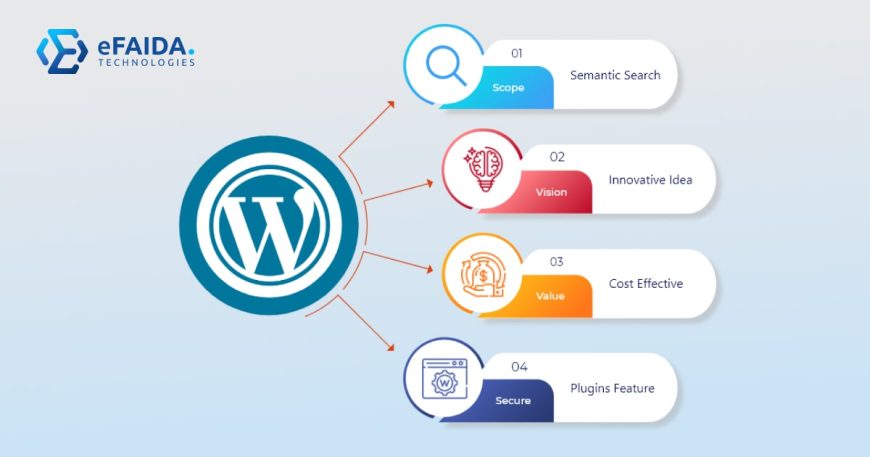Introduction
The first step of WordPress plugin development is responsible for improving the website’s capabilities It is because it increases the website functionalities and features of the website. A unique services WordPress plugins development organization develops custom-made plugins that suit their customers’ requirements exclusively. The following article examines the most important techniques of a WordPress plugin production agency and provides step-by-step instructions for building custom plugins.
Understanding Client Requirements
First, the development team researches the client’s needs ensuring that the development of the new feature can be realized. This involves finding successful plugins of the same ”kind ”, analyzing the competition, and achieving the targeting of the most suitable method. A comprehensive plan is then made with a clarification of the aspects of work, period, and the resources needed for the task.
Research and Planning
After the research and planning phase is through, a function group apprentices the plugin’s architecture into play. Such a step is taken about designing the weighty structure of the plugin has to include its characteristics, abilities, interfaces, and so on. The principle of operation will result from a client’s needs and will be given to the user with the best experience possible.
Designing the Plugin Architecture
In the next stage, the developers start implementing the plugin code. Hence, it involves translating those designs and bringing them to life through coding to be able to create the functions to be delivered by the plugin. The coding process will adhere to the best standards of the trade and will be done by the WordPress coding standards to longevity of the site and to secure the site from risk.

Development and Coding
We have to finish the design phase and only after we start coding the plugin. Implementation refers to the creation of code that will turn the human-machine interaction into reality and enable the system to fulfill its intended purpose. The coding methodology is by WordPress Coding Standards that guarantee compatibility and security by methods.
Testing and Quality Assurance
Following these steps, the coded plugin is then submitted to testing which entails that it performs as it is supposed to. This includes ensuring the application of testing for bugs, errors, and compatibility issues on different gadgets and browsers. The plugin undergoes a performance test to really to how it will actually perform in the client’s expectations.
Client Feedback and Revisions
The client then gets the chance to try the plugin, and the review process begins. This module has also other additions, such as client feedback and any recommendations received are implemented into the plugin before ending the development process. The cumulative process leads the user to the plugin version that fully satisfies the client’s demand.
Deployment and Integration
The plugin installation process is the last step of this procedure. After that, it will be deployed to the client’s website. The team will, however, actively ensure your plugin works great with the current website structure as well as other plugins. Then the plugin is retested after the release to ensure it’s working perfectly in the live environment.
Maintenance and Support
Upon the installation of the add-on, the development boffins offer further updating services. This takes into account, routine, system updates to adapt to the latest versions of WordPress and the add-on for other plugins, as well as technical support to cater to any emerging problems.
Case Studies
A WordPress plugin development firm can also opt to demonstrate its competency by using the case studies of the projects well done. The following examples illustrate the wide range of the company’s capabilities and show how favorably the plugins received by their clients’ sites.
Best Practices
Following the best practices is the must-have route to successful WordPress plugin development success. It involves the use of safe coding techniques, following WordPress coding guidelines, and keeping up-to-date with the WordPress plugins to avoid conflicts and maintain the security of the website.

Common Challenges
Plugins for WordPress that are custom-coded throw up some difficulties, like ensuring compatibility with different WP versions, complying with security rules everywhere, and performance. Nevertheless, it will be possible to eliminate them provided suitable planning and specialists work on their implementation.
Conclusion
In closure, the process of developing a WordPress plugin as a company involves several critical steps: from the step of comprehending client needs to the step of deploying and maintaining a plugin. Through consistently applying the best process and by utilizing its experience, a plugin developing company can build a custom plugin that can add to the operability and features of the WordPress website.
FAQs
Q1. How long does it take to develop a custom WordPress plugin?
The period it takes to construct a custom WordPress plugin depends on the level of complexity of the plugin and the staff availability of a development team. Typically, one might expect for example, anywhere from a few weeks up to several months.
Q2. How much does it cost to develop a custom WordPress plugin?
The cost of building a custom WordPress plugin will be higher in complex cases and if you hire a development team that may charge you for their service. It could cost you anything from a few hundred to thousands of dollars.
Q3. Can a custom WordPress plugin be transferred to another website?
Indeed, a plugin created through WordPress Customization can be transferred to another website. In other words, the process can be difficult and might require the help of the developer who will then make sure that the plugin is functioning fine upon the site migration.
Q4. Can a custom WordPress plugin be updated?
Yes, manipulating WordPress plugins can include updates to attach new features, improve the speed, or repair bugs. It is necessary to update the plugins from time to time to make sure that they are secure and mas they are compatible with the new versions of WordPress too.
Q5. Are custom WordPress plugins secure?
Plugins that are meant uniquely for customized WordPress can be secure as long best practices are followed and they are frequently updated. On the contrary, the interconnection of software makes it vulnerable to a variety of security issues, therefore consumers must be always vigilant and follow security principles.
Q6. What is the difference between a custom WordPress plugin and a pre-built plugin?
The functional variance between a custom WordPress plugin and a precedent one entails that the former is primarily tailored for a single site or a specified client cluster; alternatively, the odds are that the latter is developed for a more extensive user base that may pecuniary the need of individual algorithms.




